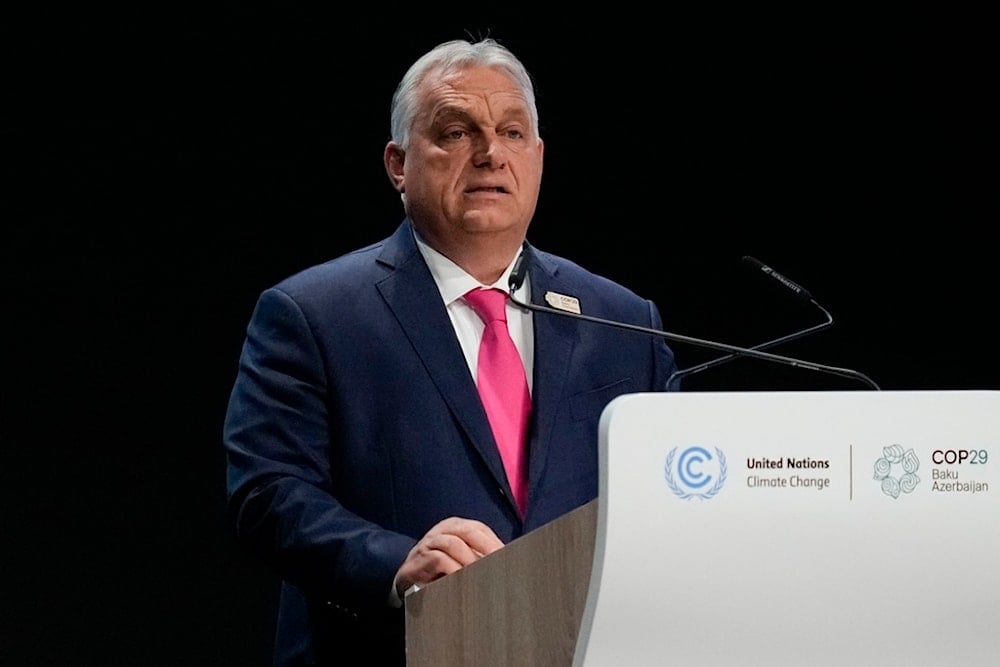EU must reconsider Russia sanctions, prioritize energy costs: Orban
Hungarian PM Viktor Orban has once again called on the European Union to consider the dire need for cutting energy prices, a measure directly linked to reassessing sanctions on Russia.
-

Hungary Prime Minister Viktor Orban speaks during a plenary session at the COP29 UN Climate Summit, Tuesday, November 12, 2024, in Baku, Azerbaijan. (AP)
The European Union should reassess its sanctions on Russia, as they continue to drive up energy costs and damaging the bloc's economic competitiveness, Hungarian Prime Minister Viktor Orban said on Friday, a week after the EU leaders' informal summit with saw the signing of a declaration on competitiveness.
"Energy prices need to be lowered by all means. This means that sanctions need to be reconsidered because under the current sanctions policy, energy prices will not go lower," Orban said during an interview on the Hungarian public radio.
Orban remarked that US companies pay only a quarter of what their European counterparts do for gas and electricity, a disparity that cannot be addressed through other measures.
Hungary has long been at odds with the EU over its approach to the war in Ukraine and its sanctions policy towards Moscow. This ongoing disagreement complicates the EU's ability to reach consensus on new restrictions, according to an August report by Euractiv, which cited diplomatic sources.
All of Europe does business with Russia: Hungary
Hungarian Foreign Minister Peter Szijjarto had previously stated that many companies within the EU continue to quietly conduct business with Russia, despite the sanctions imposed by the bloc.
“Here I would like to disappoint the idealists, as the situation is that everyone in Europe is doing this,” Szijjarto said in Budapest on Friday.
"The difference between us and the others in general is that we speak honestly and openly about this issue. All of Europe does business with the Russians, but some deny this; we don’t need that,” he said.
Szijjarto added that although Hungary doesn't agree with the sanctions, it respects them as part of EU policy. However, he emphasized that Hungary often vetoes specific EU proposals when they significantly harm its national interests, with economic cooperation with Russia being one such priority.
The EU first imposed sanctions on Moscow in 2014, expanding them significantly after the escalation of the Ukraine war in 2022. These sanctions primarily target key sectors of the Russian economy, including energy, finance, and trade.
Read more: World still clinging to Russian energy despite sanctions: Time

 2 Min Read
2 Min Read









